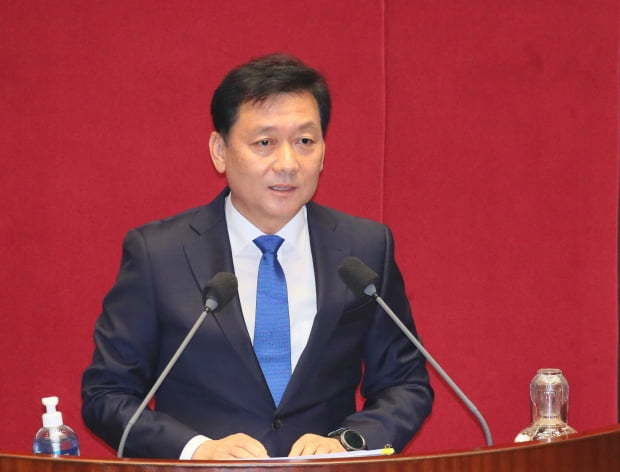Rep. Lee Kwang-jae of the ruling Democratic Party of Korea on Tuesday submitted a revised bill to support the online media content industry, including OTT businesses, jointly with the Ministry of Culture, Sports and Tourism.
“With the prolonged COVID- 19 situation, the demand for OTT service has increased,” Rep. Lee said in a statement on Tuesday. “The bill is aiming to foster the content industry that will lead the untact era.”
The Framework Act on the Video Industry Promotion Revision Bill was submitted also bolster content producers’ negotiation power vis-a-vis global firms with extensive resources, Yoon Moo-young from Rep. Lee’s office told The Korea Herald.
“It is already well-known that global OTT platform operators are expanding their presence here. For instance, Netflix is aggressively investing money into creating content, and in return, they ask for the transfer of related copyrights. As for Korean content creators, they are losing the right to earn additional profit by utilizing the content in other sectors like games, animation and VR,” Yoon said.
Local OTT operators consider it important to secure quality contents when competing with global OTT giants like Netflix.
“(After the COVID-19 broke out) the number of local Netflix users surged. Our analysis shows that this is due to Netflix joining with LG U+ and also providing content from CJ ENM and JTBC. We saw many Korean contents among the list of top 10 most viewed programs by Korean subscribers after the virus broke out,“ Lee Hee-joo, head of the planning office at local OTT firm Wavve, said during a BCWW 2020 online convention held on Monday. The five-day media convention is hosted by the Ministry of Culture, Sports and Tourism.
During the convention, Park Tae-hoon, CEO of local OTT startup Whatcha, said he views the expansion of Netflix during the first half the year as being due to the success of its original series “Kingdom 2.”
More regulations?Addressing concerns that the revised bill would lead to an increase in regulations, Rep. Lee’s office said it is following the minimum regulation principle.
For example, the bill includes a proposal to re-categorize online contents, Yoon pointed out.
“There is no separate category for online contents so they are categorized as broadcasting content. This means online contents have to go through a pre-registration for ratings,” Yoon said. “Going through this pre-registration rating process takes up to 14 days. We also found out that it costs 10,000 won ($8.43) for a 10-minute video to go through this ratings system.”
Yoon explained that the new bill will categorize online contents separately and allow content creators to rate their programming.
Should Culture Ministry head committee?
Since the new bill also mandates the creation of a committee for supporting online media contents with the Culture Ministry at the top, there are concerns that too many ministries are attempting to become involved with the OTT-related matters. Recently, the Ministry of Science and ICT and the Korea Communications Commission also each created a team for this purpose.
Rep. Lee’s office said that it believes the Culture Ministry should be the leader of the new committee as it is the ministry that deals with content-related assistance.
“This does not mean that the Ministry of Science and ICT and Korea Communications Commission will not have any role,” Yoon said. “Rep. Lee Kwang-jae often uses the camera metaphor to explain (the connection between the ministries). When taking pictures, matters related to camera will be taken care of by the Ministry of Science and ICT, while the picture should be dealt with by the Culture Ministry.”
“Also, the Culture Ministry has been communicating with OTT-business operators for a long time. Korea Communications Commission’s team just kicked off recently,” he added.
Lee’s office also added that the new bill it is not aiming to kick out Netflix from the local market.
“It true that the bill was submitted also with an intention to support local OTT companies, but it will be done through fostering the contents market,” Yoon said, adding that the bill does not call for the government to directly intervene, but to help the industry gain competitiveness.
By Song Seung-hyun (
ssh@heraldcorp.com)







![[Today’s K-pop] Blackpink’s Jennie, Lisa invited to Coachella as solo acts](http://res.heraldm.com/phpwas/restmb_idxmake.php?idx=644&simg=/content/image/2024/11/21/20241121050099_0.jpg)
